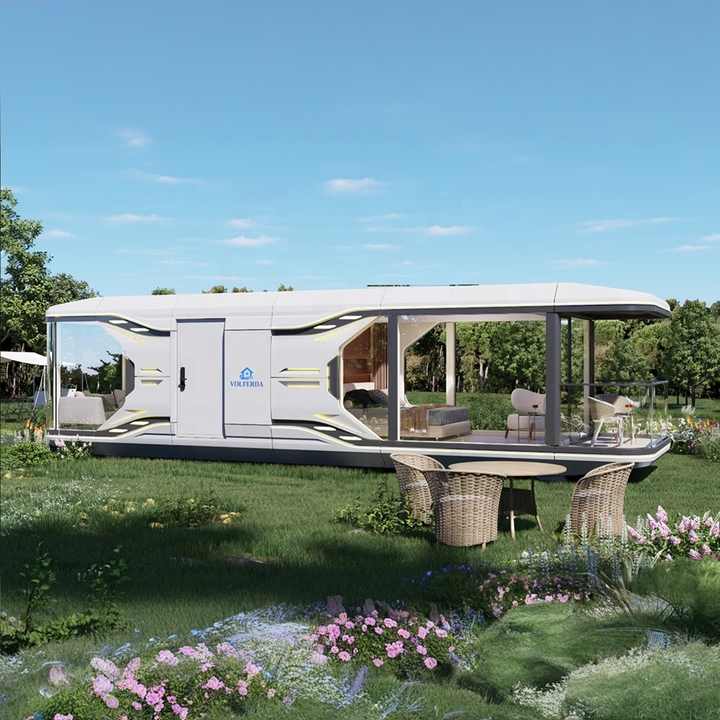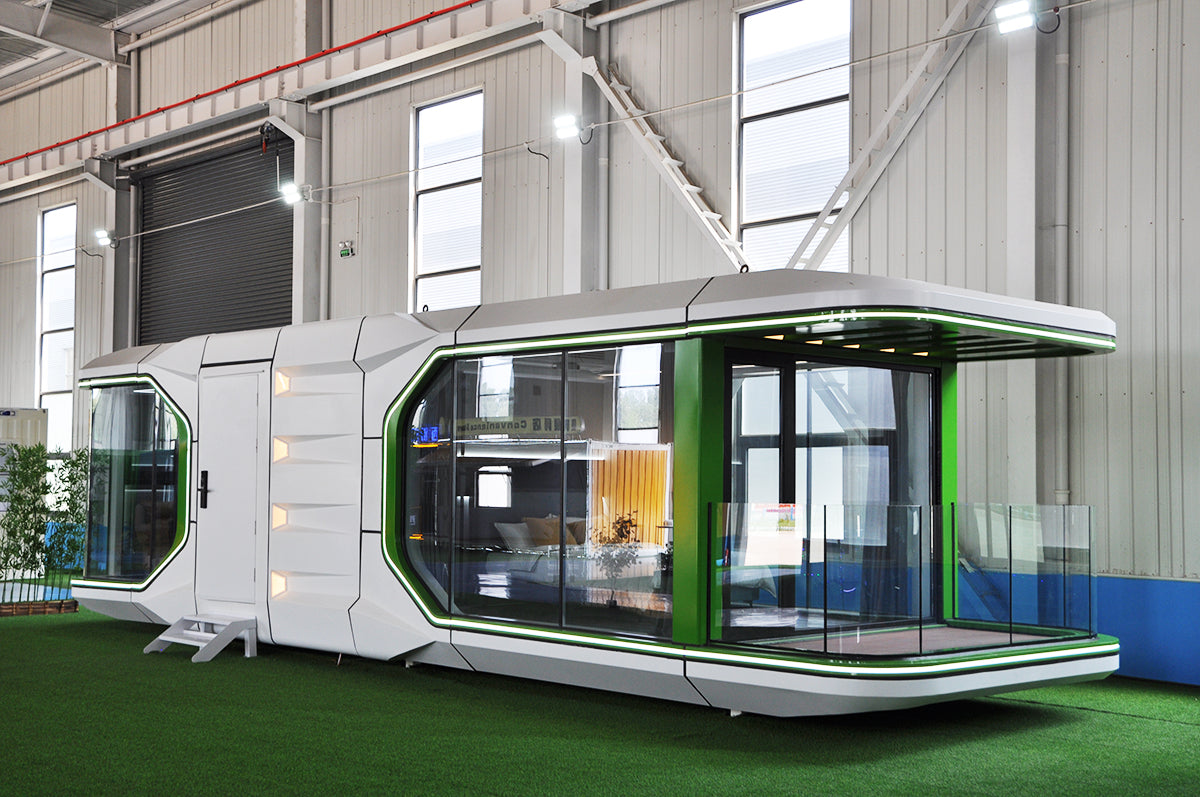How Pod Studio Homes Are Perfect for Remote Work and Small Living Spaces
How Pod Studio Homes Are Perfect for Remote Work and Small Living Spaces
Blog Article
Why Modular Homes Are the Future of Sustainable Living
Modular homes are significantly acknowledged as a pivotal remedy for lasting living, using a blend of performance, cost-effectiveness, and ecological advantages. The versatility of modular layouts allows for the assimilation of sustainable technologies and materials customized to individual demands.
Ecological Advantages of Modular Homes
The ecological advantages of modular homes represent a substantial step towards sustainable living. These homes are constructed in regulated manufacturing facility settings, which substantially minimizes waste generated throughout the structure procedure. By optimizing materials and reducing excess, modular building and construction adds to a much more reliable use of resources compared to standard structure methods.
Additionally, modular homes are frequently created with power effectiveness in mind. Numerous include innovative insulation techniques, energy-efficient windows, and sustainable products, adding to lower energy usage. This can result in minimized greenhouse gas discharges over the life-span of the home, improving its total ecological profile.
The ability to transport and put together modular elements on-site likewise lowers the carbon impact connected with construction logistics. Furthermore, several modular homes are developed to be versatile and quickly upgradeable, permitting home owners to implement lasting technologies, such as solar panels and energy-efficient heater, over time.
Inevitably, the ecological advantages of modular homes not only promote sustainable living however also motivate a more accountable approach to housing development, aligning with worldwide initiatives to fight environment adjustment and maintain natural deposits for future generations.
Cost-Effectiveness and Price
Structure a home often represents among the biggest financial investments people make in their lifetime, and modular homes provide an engaging service for those looking for cost-effectiveness and price. Among the primary benefits of modular homes is their reduced construction costs compared to traditional site-built homes. The streamlined manufacturing procedure enables significant financial savings on labor and products, which translates to decrease costs for consumers.
Furthermore, modular homes commonly have much shorter building timelines. This not just lowers expenditures related to funding and insurance coverage yet additionally minimizes the dangers associated with inflation and varying market conditions. Many purchasers discover that modular homes can be personalized to fit their budget plans without compromising top quality or layout.
In addition, power effectiveness is often built right into the layout of modular homes, resulting in minimized utility bills over time. Numerous manufacturers prioritize lasting materials and practices, better improving the lasting economic feasibility of these homes. On the whole, the mix of initial price financial savings, fast construction, and ongoing energy effectiveness makes modular homes an attractive choice for those looking to purchase sustainable living without damaging the bank.
Efficiency in Building And Construction
Modular homes not only use financial benefits however additionally master building and construction performance. The modular building procedure involves the synchronised construction of modules in a factory setup while website preparation takes place simultaneously. This parallel technique substantially reduces the general timeline from fertilization to completion, usually reducing building and construction time by as much as half contrasted to traditional approaches.
In addition, factory-controlled environments improve quality assurance. By utilizing precision production techniques, modular homes are developed to exact requirements, reducing waste and mistakes. This uniformity not just brings about a better item but additionally contributes to sustainable methods by reducing product waste during construction.
Furthermore, making use of contemporary technology and automation in the manufacturing process enables quicker assembly and lowered labor prices. Once the components are transferred to the website, they can be successfully assembled, further accelerating the timeline. This streamlined process is not only advantageous for home builders but also reduces interruptions to the surrounding atmosphere during construction.
Customization and Design Adaptability
An outstanding selection of modification alternatives differentiates modular homes, allowing house owners to tailor their space to meet particular demands and choices. This style flexibility is a hallmark of modular building, allowing clients to pick whatever from flooring plans and room formats to finishes and fixtures. Unlike conventional homes, modular layouts facilitate a collaborative approach where designers and builders function closely with house owners, guaranteeing that check this site out each facet aligns with aesthetic desires and individual way of lives.
Furthermore, modular homes can be conveniently reconfigured or broadened, fitting changing family dynamics or advancing personal see this site preferences. This versatility not only improves the home's performance but likewise adds to lasting sustainability, as house owners can modify their rooms as opposed to seek brand-new real estate options.

Future Fads in Sustainable Real Estate
Arising trends in sustainable housing are improving the landscape of domestic building and construction, highlighting environment-friendly techniques and ingenious modern technologies. One substantial pattern is the assimilation of smart home technology, which boosts power efficiency through automated systems that check and maximize power usage. This not only decreases energy prices however also contributes to a lower carbon impact.
In addition, making use of lasting materials is becoming increasingly typical. Builders are selecting recycled, in your area sourced, or swiftly eco-friendly materials, which lessen environmental impact and assistance neighborhood economic situations. Modular homes are acquiring appeal for their minimized waste throughout building and construction and their adaptability to numerous terrains and environments.
An additional trend is the unification of environment-friendly roofing systems and living wall surfaces, which boost air quality and find more information supply all-natural insulation. These attributes also advertise biodiversity in urban locations.
Final Thought
In verdict, modular homes become an essential option for lasting living, supplying substantial environmental advantages via decreased waste and energy performance. Their cost-effectiveness and affordability address the growing housing needs in city locations, while efficient construction processes enhance general efficiency. The intrinsic customization and style flexibility deal with varied preferences and demands. As fads in lasting real estate evolve, modular homes are positioned to play a critical function in promoting green living practices for future generations.
Structure a home commonly represents one of the largest economic investments people make in their life time, and modular homes use a compelling option for those looking for cost-effectiveness and affordability. One of the main benefits of modular homes is their reduced building and construction expenses contrasted to conventional site-built homes. On the whole, the combination of first price savings, quick construction, and ongoing energy effectiveness makes modular homes an attractive alternative for those looking to spend in lasting living without damaging the bank.
Ultimately, the customization and design adaptability used by modular homes make certain that they are not just structures, yet individualized havens that mirror the unique identities of their occupants while promoting lasting living methods.

Report this page